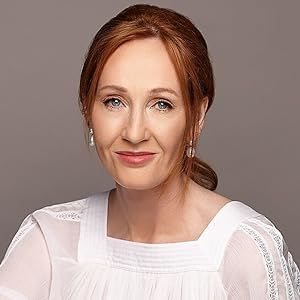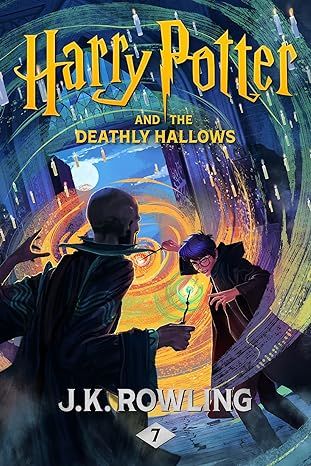
Harry Potter and the Deathly Hallows
4.9 out of 5
94,142 global ratings
'Give me Harry Potter,' said Voldemort's voice, 'and none shall be harmed. Give me Harry Potter, and I shall leave the school untouched. Give me Harry Potter, and you will be rewarded.'As he climbs into the sidecar of Hagrid's motorbike and takes to the skies, leaving Privet Drive for the last time, Harry Potter knows that Lord Voldemort and the Death Eaters are not far behind. The protective charm that has kept Harry safe until now is broken, but he cannot keep hiding. The Dark Lord is breathing fear into everything Harry loves and to stop him Harry will have to find and destroy the remaining Horcruxes. The final battle must begin - Harry must stand and face his enemy...Having become classics of our time, the Harry Potter eBooks never fail to bring comfort and escapism. With their message of hope, belonging and the enduring power of truth and love, the story of the Boy Who Lived continues to delight generations of new readers.
About the authors
J.K. Rowling
J.K. Rowling is the author of the enduringly popular, era-defining Harry Potter book series, as well as several stand-alone novels for adults and children, and a bestselling crime fiction series written under the pen name Robert Galbraith.
The Harry Potter books have now sold over 600 million copies worldwide, been translated into 85 languages and made into eight blockbuster films. They continue to be discovered and loved by new generations of readers.
Alongside the Harry Potter series, J.K. Rowling also wrote three short companion volumes for charity: Quidditch Through the Ages and Fantastic Beasts and Where to Find Them, in aid of Comic Relief, and The Tales of Beedle the Bard, in aid of her international children’s charity, Lumos. The companion books and original series are all available as audiobooks.
In 2016, J.K. Rowling collaborated with playwright Jack Thorne and director John Tiffany to continue Harry’s story in a stage play, Harry Potter and the Cursed Child, which opened in London, and is now thrilling audiences on four continents. The script book was published to mark the plays opening in 2016 and instantly topped the bestseller lists.
In the same year, she made her debut as a screenwriter with the film Fantastic Beasts and Where to Find Them. Inspired by the original companion volume, it was the first in a series of new adventures featuring wizarding world magizoologist Newt Scamander. The second, Fantastic Beasts: The Crimes of Grindelwald, was released in 2018 and the third, Fantastic Beasts: The Secrets of Dumbledore was released in 2022.
The screenplays were published to coincide with each film’s release: Fantastic Beasts and Where to Find Them - The Original Screenplay (2016), Fantastic Beasts: The Crimes of Grindelwald - The Original Screenplay (2018) and Fantastic Beasts: The Secrets of Dumbledore - The Complete Screenplay (2022).
Read more
Reviews
William L. Isley, Jr.
5
Harry Potter: The Good and the Not So Good
Reviewed in the United States on June 30, 2014
Verified Purchase
Harry Potter Part II: The Good and the Not So Good
A good way to evaluate Harry Potter is to compare it to Tolkien’s Lord of the Rings trilogy. Taking into account the facts that Tolkien’s masterpiece is the standard for fantasy literature and that Rowling is writing a slightly different genre and for a different audience, Harry Potter holds up fairly well. Nevertheless, Rowling falls short at a crucial point. That shortcoming, however, is one that much Christian thinking about God and evil shares. We desperately need to hear Tolkien in order to avoid the errors of moralism and a simplistic faith that cannot withstand the tidal waves of disappointment in the face of the hiddenness of God. The similarities between Tolkien’s and Rowling’s works are obvious. They are both fantasy literature, have a deep concern with the dangers of power, and share a typically British appreciation for normal life. The differences are just as important. Harry Potter is also a coming of age story and shows a marked preoccupation with death. The Lord of the Rings is an epic tale and so more in tune with the tragic dimension of life. As a coming of age story, Harry Potter is necessarily geared to a younger audience than Tolkien, and, at least in the earlier volumes, is at the level of intelligent older children. As Harry, Ron, and Hermione grow up, the story becomes more appropriate for adolescents and young adults. I think this is why Rowling has so much more humor than does Tolkien. Her marvelous gift for invention is used to entertain children and teens. Howlers, disgusting jelly bean flavors, and quidditch are great fun. She also includes a wonderful collection of queer beasts and odd ball characters. Tolkien is the better stylist. As an epic author his prose has a gravitas that is lacking in Rowling, and his landscape descriptions carry the reader into a world of sweeping grandeur. At times Rowling’s writing contains some painful lapses. Rowling does avoid the trap of simplistic characterization, a failing of many children’s and cosmic conflict stories. Her characters are not mere cartoon figures of pure good and evil. There is internal conflict and failure by the good. Hermione can be a prig. In addition to Ron’s adolescent addiction to snogging (which is Rowling’s fault not his), he is subject to juvenile jealousy, and Harry can feel real hatred. Harry also has to come to grips with the fact that his father had mistreated Snape, and, as a young wizard, even Dumbledore had lusted for power. Also, some of the bad characters are not purely evil. The Malfoy family is a case in point. Lucius Malfoy, a nasty bigoted man, in the end is a weak person. His wife Narcissa is too, but at the same time she is strongly devoted to her son Draco, a devotion that leads her to lie to Voldemort and save Harry Potter. Draco, the bad boy bully in all the earlier stories, still has enough decency not to want to kill Dumbledore and in the end, if not reconciled to Harry, at least has become a husband and a father who is no longer actively hostile to Potter. Both Rowling and Tolkien finish their tales in the typically British fashion in which the great cosmic battle for evil results in the reestablishment of normal life. In Tolkien the Shire is restored, and Sam becomes happily married. In Harry Potter the main characters are married and send their children to Hogwarts. Yet this return to the normal points to the most serious shortcoming of Harry Potter. Rowling’s portrayal of evil lacks the depth of Tolkien’s. Harry’s loss of his parents and friends poignantly portrays the human desire to escape the tragic consequences of death. Voldemort’s quest for immortality shows how that desire can be perverted to very evil ends. In the end, however, Harry can go on to live a normal life, having matured from his combat with evil but not being permanently marred by it. He can live a normal life even though he has a scar. The effect of evil upon Frodo is lasting, symbolized by his loss of a finger and the injury received on Weathertop that never completely heals. Frodo does not just have battle wounds. He is a wounded person. He cannot return to a normal life in the Shire and is granted passage to Valinor where he will find peace. As I watched Harry snap the Elder Wand and cast it into an abyss in the movie version of The Deathly Hallows (in the book he returns it to Dumbledore’s grave) so that it could never be used for evil purposes again, I couldn’t help but think of the contrast with Frodo and the ring of power. Harry, the true hero, resists the temptation to abuse power. In The Lord of the Rings Frodo fails. He cannot resist the temptation to keep the ring and use its power for himself. The ring is only destroyed because Gollum wants it for himself, takes it from Frodo, and then falls into the fires of Mount Doom. In Tolkien evil is not defeated by the heroic efforts of an individual. Evil defeats itself in what he calls a “eucatastrophe” (See his “On Fairy-Stories” in Essays Presented to Charles Williams edited by C. S. Lewis.). Tolkien’s eucatastrophe is undoubtedly derived from the biblical notion of evil defeating itself, especially in the cross of Christ where the forces of evil do their worst and unwittingly trigger the means of saving the world. The theme of evil defeating itself is present in Harry Potter. The killing curse that Voldemort uses upon Harry is his own undoing, but in the final analysis it is Harry’s heroic action that saves the day. We Christians often present the Bible as a collection of tales about heroes from whom we can learn moral lessons and ways to live victoriously. We look for evident victories. Sadly our quest for evident victories means that we will seek power to win them. In so doing we walk by sight and thus succumb to power’s hidden capacity for evil. We forget that God has chosen to reveal the biblical characters as sinners and frequently as failures. The hero of the biblical narrative is God, and his ways are not only higher than ours they are often hidden from us. In the darkest hour, at the moment of testing, the Christian will often fail. Yet even then the unseen hand of God’s providence is working to overcome evil. Indeed, the very victories of evil, such as the cross, are the moments of its greatest downfalls. By trusting in the hidden God, we learn to walk by faith and not by sight and overcome the temptations of power. As the Lord told Paul, “My grace is sufficient for you, for my power is made perfect in weakness” (2 Corinthians 12:9).
Read more
26 people found this helpful
Kevin J. Loria
5
An exceptionally satisfying bookend to an exceptional series that will live on long past the final Hollywood interpretations
Reviewed in the United States on July 22, 2007
Verified Purchase
I MUST NOT TELL LIES....I rarely find that final books, movies, etc. live up to expectations, especially ones generating such a mainstream buzz. But after nearly a decade of devotion, as a reader introduced to the series early, I am content with Harry Potter and the Deathly Hallows. This is also exceptional because of the sheer enormity of the body count on this one, like the 2 books before it, most of the fallen turned out to be my favorite characters. The author had released before the release that two major characters who die. This is an understatement. Of course, plenty of death happen "off screen," TEN deaths are "major" players in the sense that they appear in 4-7 books!
While J.K.Rowling avoids making this the largest novel in order to answer all the questions and plot requirements, she does do the finale staple in the referencing or return of many, many, many concepts, characters and catch-phases of the past 6 books. Settings, spells and special guest appearances are all welcome additions to HP VII. Things big and small appear with parts to play: For example Dedalus Diggle, a very minor player, was the first wizard to appear in Book 1, and he is the first to do so here in the final story. Other characters returning in person or as a passing reference include the likes of: Mr. Ollivander, the surviving members of the Order and the D.A., the Malfoys, the Weasley's Ghoul, Stan Shunpike, Grindelvald, Nearly-Headless-Nick, Norbert, Bathilda Bagshot, R.A.B., Gregorovitch, Viktor Krum, the Lovegoods, house elves, Wormtail just to name a few. Watch out for cameos or references to inanimate and animate objects like, Harry's first snitch, his invisibility cloak (which plays a major role ), the Monster Book of Monsters, the Whomping Willow, the Marauder's Map, pensieves, Polyjuice Potion, and even Sirius' flying motorcycle as referenced early in Sorcerers' Stone.
Book SIX focused on tracking down the Horcruxes or magical objects into which the Dark Lord Voldemort a.k.a Tom Riddle has divided his soul to be virtually immortal. Horcruxes we've seen the Diary, the Ring, the great snake Nagini and Voldemort himself. We get some insight into his history and plans, but by the end of Half-Blood Prince we have as more questions than answers.
Questions ultimately answered in Book Seven:
Is HARRY himself one of the remaining Horcruxes? How to destroy them? How did Dumbledore destroy the ring? Where is real locket Horcrux? Who is R.A.B.? What becomes of Hogwarts? Is Snape evil? Why did Dumbledore trust him? Did Dumbledore have a plan? What are the Deathly Hallows? What is Voldemort's ultimate goal? Must HARRY die to stop Voldemort? What did Dumbledore really see in the Mirror of Erised, back in Book 1?
BOOK 7... Careful some plot spoilers below.......
This one opens with scenes behind enemy lines, revealing Harry's 17th birthday and the end of his protection from the Dark Lord is fast approaching. The Death Eaters are ready for the Order's plan to move Harry to a safe house. Following a down-rite heart warming good-bye to the Dursleys, the action-packed escape ends with the loss of more than just Harry's broom, but two friends fall as his childhood innocence is symbolically stripped from him. Things slow-down just long enough for The Wedding, before the chill is off the drinks all hell breaks lose and Harry's quest begins again for the "you know whats" and this time Harry's archetype takes on literal interpretation as his searches for a sword, "the Sword of Gryffindor" possibly the only way to finish his assignment for Dumbledore. The Sword is at Hogwarts and Hogwarts is again controlled by the Ministry, but a corrupt or controlled government which has placed Snape as Headmaster. He has the Sword in Dumbledore's office, or does he? This quest and the search for the Horcruxes lead Harry back to the ex-headquarters of the Order, Grimmauld Place where he makes things right with Kreacher, the house elf willed to Harry along with the family estate itself. Harry visits his own family's home which has become a memorial of sorts like GRACELAND. I think Hermione would disapprove of the graffiti there as well. Before this there is a daring visit to the "Muggle-Born Registration Commission. Forced further into hiding the trio learn more of Dumbledore's early history, the tale of the 3 Brothers and possible revelations about Harry's cloak.
The Sword is recovered by a Gryffindor other than Harry, but pulled from a lake like the Arthur archetype. Harry learns the hard way that there is power and fear in a name as the taboo on the Dark Lords name leads to the trio's capture and imprisonment at Malfoy Manor where Voldemort himself is a house-guest. Wormtail makes good on his debit to Harry. Ultimately they escape at the cost of a friend's LIFE along with fellow prisoners: Griphook the Goblin, Luna Lovegood and wandmaker Ollivander. They learn lots of wand lore that will be Harry's key weapon in his "final" battle with the Dark Lord, the "Elder Wand" will be the deciding force. Griphook will lead Harry and friends as they break into the best protected place in the wizarding world Gringotts Bank in order to claim a Horcrux. Are there really Dragons and traps protecting the place? Griphooks price for this good deed?
During return to HOGWARTS, new secret entrance to the school is revealed, along with a character previously only referenced Aberforth Dumbledore, who reveals his late brother's motivating guilt. Also the D.A. are summoned, among others to help Harry in his final quest. Harry up to this point has walked a fine line, between falling into the traps that both Tom Riddle and Dumbledore fell. The desire for the "Greater Good" costing a lot of lives. For all of his trust in people Dumbledore's greatest weakness was his secretiveness, and it cost both him and Harry plenty. Meanwhile, Harry risks his life turning away from killing whenever possible, Lupin even calls him on this early in this story. Harry here makes a choice to include the D.A., his friends & students from Hogwarts in his last mission for Dumbledore. This final battle at the school sees the return of many magical forces from the Forest and more. What begins as a play for time becomes the end of the war. The cast of characters and tied up plot lines is enormous here, Ron proves his worth and cleverness in "now or never" moments while Neville Longbottom proves himself a true Gryffindor as well.
Fear not there is an epilogue that is a satisfying bookend for the series as is the entire novel, "An exceptionally satisfying bookend to an exceptional series" that will live on long past the final Hollywood interpretations, as surely as THE CHUDLEY CANNONS will rank bottom of this years LEAGUE!!"
Thanks J.K.
Long live Gryffindor, where dwell the Brave at Heart!
Read more
7 people found this helpful
SabCam
5
Making the Headlines for Book of the Year, Deathly Hallows!
Reviewed in the United States on June 6, 2024
Verified Purchase
This book has to be one of the greatest ways to end the original Harry Potter series! Not only showing the battle, but also showing love to characters, deaths to favorites (RIP Fred), and plot twists! Bravo to J.K. Rowling for making a wonderful series!
Tara Saluja
5
one of my favorite in the series
Reviewed in the United States on June 8, 2024
Verified Purchase
Will always love these books and series Great dramatic ending. The journey and dynamic between the group has so many layers, it’ll keep you entertained throughout

NoLongerHere
5
Are there MORE than 5 stars to give?
Reviewed in the United States on July 24, 2007
Verified Purchase
Allow me to begin by saying I refuse to spoil any part of any of these books for anyone for any reason. If you haven't read the books, stop here, buy them, read them, return...
That being said, instead of detailing the book (as I normally would in a review) I'll recount my own experience:
I pre-ordered this book when it first became available to do so. At that time, I had not read any of the books, but had seen the first four movies based upon the books. I promptly purchased the 6 books which precede the Deathly Hallows and read them.. the Order of the Phoenix I read three times, the Half Blood Prince I read twice and completed my second read one week prior to the release of the Deathly Hallows. I was intent on reading the series and this final book before anyone could spoil the ending for me. You see, I had already learned the fate of ... some of the characters involved in OOP and HBP, because there are people in this world who live off of the pleasure of ruining things for other people. I was determined to read the series and this final book before some loud mouth jerk could ruin it for me. I succeeded.
With one week to go for the book release I began thinking that perhaps all these questions swelling inside of me - is Snape friend or foe? where are the horcruxes? will Harry live? - and so many other questions did not need answering. The magic of this series was in bringing out the discussion, the last few months (well over a year, actually) have had fans on the edges of their collective seats, casting about all kinds of theory and conjecture, ideas born of the tiniest details about mundance things. The magic - the true magic of it all - was in bringing together generations of readers in discussion about one of our era's literary masterworks.
One week to go to get the book, and I was telling myself that I'd rather not read it, that I'd rather put it neatly on a shelf, so that no matter what happens to who, the magic would always live on, the dicussions would never end, the theories and conjectures would continue to bind readers together. A very noble, yet unrealistic notion, I agree. I had my fears that certain characters would die, and in not reading this book, I theorized that they would live forever if I never read about their deaths.
The evening prior to the book's release, my daughter attended a Potter party at a Barnes & Noble book store. She is not a fan - she likes the movies, but she's not a fan of science fiction or fantasy, and has refused to read the books. Okay. She's entitled to her tastes. But she attended the party because some of her friends are Potter fans. I sat home, jealous that I wasn't a teenager and therefore way too old to attend a Potter party. I should have gone, I regret not going - the last of the Potter hooplas, the last Hallow's Ball. At any rate, my daughter brought home a wand and some Potter glow-in-the-dark eye glasses for me. I would like to have gone, but how sad is it to see a 40-something woman dressed as a witch for a Potter party? Perhaps not sad at all, but I feared being the oldest witch at the party...
At midnight, I leaped from my seat and counted down the 60 seconds to the 12:01am mark of release of the book. My husband, who is use to my insane moments such as this, simply looked at me and nodded off.
The next day - delivery day! - I cleaned every square inch of my house waiting for the UPS delivery van to pull up and bring me my book. I started cleaning at 8am... the book arrived at 4pm. A full day of scrubbing everything around me in a vain attempt to make the time go faster so that the book would finally arrive. I knew that once the book did arrive, nothing would get done.
I had two hours to read the opening chapters of the book, because we had planned to make an excursion to a drive-in movie theater that evening to see the Order of the Phoenix movie. I very reluctantly put the precious book down for the evening.
Sunday, July 22nd: the day I was able to spend every waking hour with Harry Potter and Co. I gathered the book, a bottle of water, a blanket and pillow, and headed out to my backyard where I have a hammock which hangs by a stream, overlooking a deep patch of woods. My own Forbidden Forest, of sorts.
It is now Tuesday afternoon, and the book is completed. I spent some time re-reading chapters before completing the book, just to make sure I had fully absorbed everything.
It is a wonderful book, it answers just about everything you'd want answered. There are some questions which are left open, and perhaps JKR did this to keep alive the discussions, or perhaps these questions are answered already (and the books need to be re-read). But mostly everything you'd want answered is indeed answered, albeit some things are way off from what many of us believed. Some, however, are right on. I recall several times yelling outloud, "I knew it!" There were MANY times when I sat here with a hand over my mouth, in stunned awe at what I was reading. And still, there were plenty of times I burst out crying.
No disappointment in the way this book was written, the way the whole story comes to its fruition, or the way the characters who survive, survive. And that little "crack" that JKR says she slipped in there incase she wanted to return to the 'wizarding world?' Yes, I even liked that (I don't normally). It works. It all works. It all makes perfect sense, and it could not have ended any other way.
Thank you - thank you - thank you - JKR. Thank you for such a wonderful fantasy, a wonderful world and this awesome, incredible boy, Harry Potter. Thank you.
Read more
9 people found this helpful
Top J.K. Rowling titles
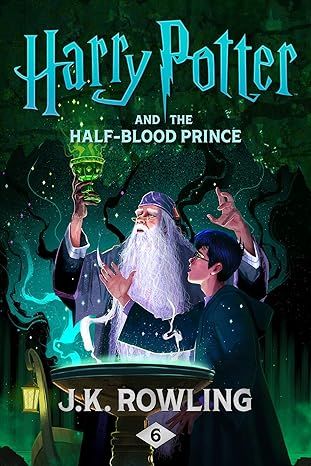
Harry Potter and the Half-Blood Prince
4.9
-
79,302
$9.71
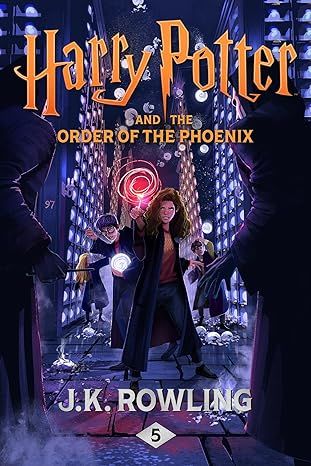
Harry Potter and the Order of the Phoenix
4.8
-
84,349
$6.00
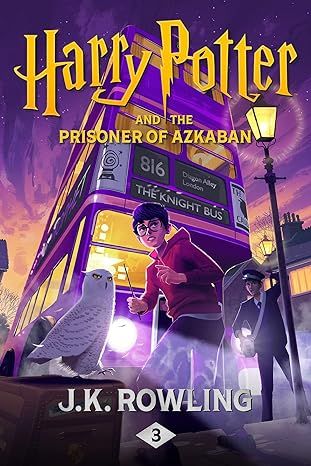
Harry Potter and the Prisoner of Azkaban
4.9
-
91,787
$8.84
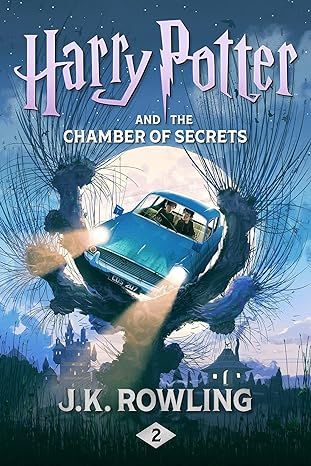
Harry Potter and the Chamber of Secrets
4.8
-
95,736
$8.21
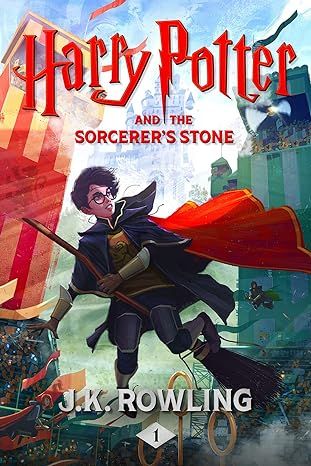
Harry Potter and the Sorcerer's Stone
4.8
-
53,320
$9.62
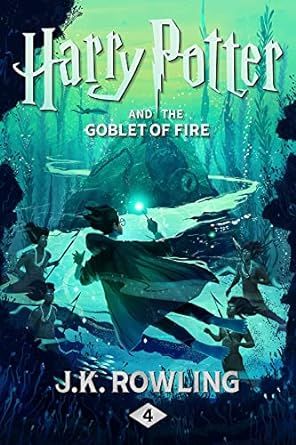
Harry Potter and the Goblet of Fire
4.8
-
84,149
$6.97
Best Sellers

The Great Alone: A Novel
4.6
-
152,447
$5.49

The Four Winds
4.6
-
156,242
$9.99

Winter Garden
4.6
-
72,838
$7.37

The Nightingale: A Novel
4.7
-
309,637
$8.61

Steve Jobs
4.7
-
24,596
$1.78

Iron Flame (The Empyrean, 2)
4.6
-
164,732
$14.99

A Court of Thorns and Roses Paperback Box Set (5 books) (A Court of Thorns and Roses, 9)
4.8
-
26,559
$37.99

Pretty Girls: A Novel
4.3
-
88,539
$3.67

The Bad Weather Friend
4.1
-
34,750
$12.78

Pucking Around: A Why Choose Hockey Romance (Jacksonville Rays Hockey)
4.3
-
41,599
$14.84

Start with Why: How Great Leaders Inspire Everyone to Take Action
4.6
-
37,152
$9.99

Tomorrow, and Tomorrow, and Tomorrow: A novel
4.4
-
95,875
$13.99
